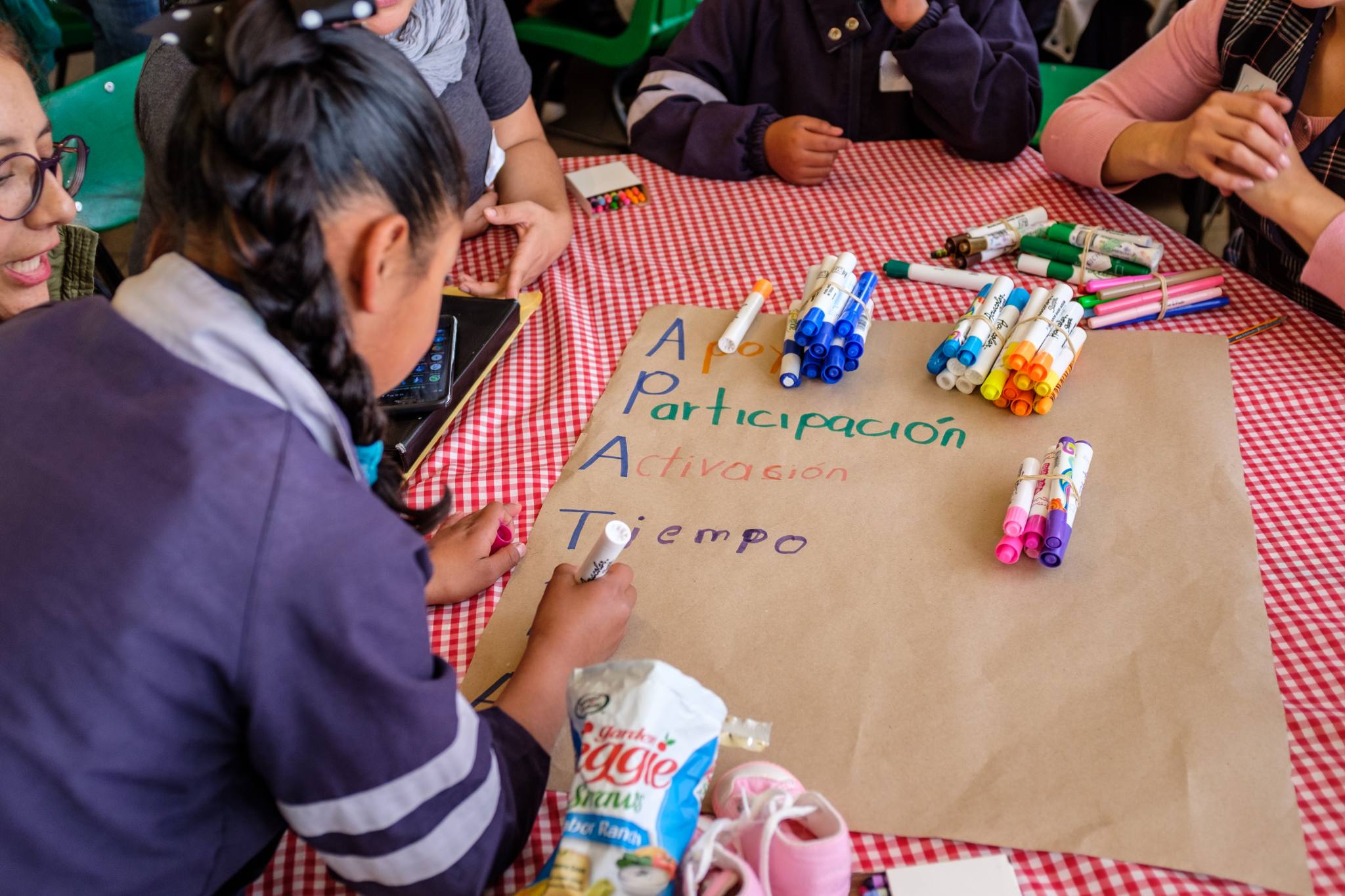
 John Moravec
John MoravecDon’t value what we measure; measure what we value
Our mainstream education systems are caught in a damaging obsession with measurement, yet they consistently measure the wrong things. Schools meticulously track test scores, attendance, and graduation rates, acting as if these numbers genuinely define learning. They don’t. This relentless focus on high-stakes testing doesn’t improve education; it distorts it, forcing students to perform rather than to understand. Teachers are pressured to “cover” material instead of focusing their energies on cultivating curiosity and creativity. Policymakers equate test results with progress, ignoring whether students can truly think critically, solve problems, or apply knowledge in real-world contexts.
This paradigm is not new. Standardized testing evolved from intelligence testing and industrial-era efficiency models, gaining significant traction with accountability movements Sahlberg (2015) refers to as the Global Education Reform Movement (GERM). The idea was to ensure public resources were used wisely, a seemingly reasonable goal. However, these policies inadvertently narrowed the curriculum and magnified the perceived importance of easily quantifiable outcomes (Au, 2009; Ravitch, 2010).
From Manifesto 25:
Don’t value what we measure; measure what we value. Assessments should empower learners, not instill fear. The obsession with high-stakes testing abets anxiety and reduces education to rote memorization, sidelining critical thinking and problem-solving. The cult of high-stakes testing has become the misguided arbiters of success, spreading a harmful culture of comparison and underperformance anxiety worldwide. This fixation undermines genuine innovation, with promising ideas dismissed due to measurement concerns. Worse, schools produce leaders ill-equipped to interpret data critically. We must eliminate compulsory high-stakes testing and redirect resources toward initiatives that advance authentic learning and meaningful, multidimensional growth.
The harmful illusion of high-stakes testing endures
The core of the problem is that assessments should empower learners, not instill fear. Instead, the obsession with high-stakes testing abets anxiety and reduces education to rote memorization, sidelining critical thinking and problem-solving (Kohn, 2000). The “cult of high-stakes testing” has become the misguided arbiter of success, spreading a harmful culture of comparison and underperformance anxiety worldwide. This fixation undermines genuine innovation, often dismissing promising ideas due to measurement concerns. Worse, schools produce leaders ill-equipped to interpret data critically, a crucial skill in a complex world.
In the 13th point of the manifesto, we explain we cannot manage knowledge. High-stakes testing doesn’t empower learners; it conditions them. It rewards rapid recall of data and information and penalizes deeper thinking and genuine expressions of knowledge. This turns learning into performance, replacing exploration and growth with anxiety and fear (Bransford, Brown, & Cocking, 2000). Tests primarily measure compliance rather than capability, encouraging students to avoid challenges for fear of failure. The outcome? Graduates adept at navigating standardized exams but who struggle with complex, unstructured problems that demand creativity and adaptability.
This system also deepens inequity. High-stakes tests often reflect and perpetuate existing societal disparities, disproportionately impacting marginalized student populations: those from low-income backgrounds, racial minorities, English language learners, and students with disabilities. Factors like test bias, unequal access to resources, and culturally biased content mean these exams often measure privilege rather than potential, exacerbating social stratification (Darling-Hammond, 2004; Valenzuela, 1999).
The testing industry perpetuates the myth that success can be quantified by a single number. This has profound consequences. Ideas and skills that cannot be easily measured are dismissed or marginalized. Innovation suffers because it does not conform to established metrics. Schools emphasize measurable subjects at the expense of critical thinking, creative expression, and emotional intelligence—qualities essential for navigating future challenges. The outcome is a workforce proficient at following instructions but lacking the capacity to interpret data critically, question assumptions, or propose innovative solutions (see esp. Zhao, 2009).
For teachers, the impact is equally severe. High-stakes testing narrows curricula, reduces teacher autonomy, and fuels stress and burnout. It can de-professionalize educators, reducing their complex role to mere test preparation, discouraging pedagogical risk-taking, and stifling the very innovation needed to adapt to diverse student needs. Meanwhile, the testing industry itself is a lucrative business, with significant financial incentives and political lobbying influencing education policy, further entrenching these problematic practices (Hursh, 2007).
High-stakes testing is a well-intentioned but misguided attempt at accountability. Governments understandably seek clear indicators of success when investing public resources in education. However, standardized test scores offer only the illusion of clarity. They measure only what is easily quantified, not what is meaningful or valuable. Ironically, testing has become a lucrative, multi-billion dollar business paid for and by governments.
True accountability should not focus on numbers alone but on whether students develop the skills and mindsets needed to thrive beyond school. Education policies must evolve beyond simplistic metrics and toward comprehensive systems that recognize and reward the complexity of authentic learning. This doesn’t mean abandoning assessment entirely; it means creating assessments aligned with genuine learning. Schools should assess students‘ capacity to analyze, synthesize, and apply knowledge.
Pathways to authentic assessment
Portfolios, collected over time, illustrate genuine growth by highlighting students’ evolving understanding and skills. A student’s portfolio might include a science project demonstrating the gradual refinement of a hypothesis through experimentation and feedback. In creative writing, drafts and revisions document how students develop their ideas and expressive abilities over time. Similarly, portfolios in subjects such as mathematics or technology might showcase ongoing projects, including challenges overcome, mistakes made, and innovative solutions generated through iterative problem-solving. These examples reveal deeper layers of learning, creativity, and innovation, elements of personal knowledge development which traditional tests cannot capture. Detailed narrative feedback from teachers provides constructive guidance that numeric scores cannot match.
Effective assessments must support learning rather than merely sorting and ranking students. Assessments should help students grow, providing insights into their strengths and areas for improvement. Peer reviews, collaborative projects, and self-reflective practices encourage ongoing engagement with content and continuous development. Education must move beyond numeric scores to foster active, reflective, and meaningful learning experiences.
Achieving this transformation requires prioritizing human development over mere compliance. Governments must redefine accountability to ensure schools cultivate lifelong learners rather than enforcing rigid benchmarks. Resources currently dedicated to testing and compliance should be redirected to develop assessment methods that capture the complexity and depth of human intelligence (Linn, 2000; National Research Council, 1999).
Despite decades of mounting research and persistent critiques from educators, parents, and even some policymakers, the foundational issues surrounding high-stakes testing remain stubbornly entrenched. While the specific names of policies may shift, the core reliance on standardized metrics for accountability continues to dominate. This means that the foundational literature cited here, some from decades past, remain remarkably relevant. Their findings (i.e., on the detrimental impact on learning, equity, and teacher morale) serve as reference points for continuous observations of a problem that, for various political and economic reasons, has seen remarkably little systemic resolution. This enduring continuity of stagnation underscores a profound and continued failure to prioritize authentic learning over easily quantifiable (though deeply flawed) outcomes.
Education must measure what truly matters: critical thinking, collaborative skills, creativity, and the capacity to contribute meaningfully to society. Only then can assessment be tooled to empower students and reflect authentic learning.
Read and sign Manifesto 25 at https://manifesto25.org
References and recommended readings
Au, W. (2009). Unequal by design: High-stakes testing and the standardization of inequality. Routledge.
Bransford, J. D., Brown, A. L., & Cocking, R. R. (Eds.). (2000). How people learn: Brain, mind, experience, and school. National Academy Press.
Darling-Hammond, L. (2004). From “separate but equal” to “No Child Left Behind”: The collision of new standards and old inequalities. In D. Meier (Ed.), Many children left behind: How the No Child Left Behind Act is damaging our children and our schools (pp. 3-32). Beacon Press.
Darling-Hammond, L., & Snyder, J. (2000). Authentic assessment of teaching in context. Teaching and Teacher Education, 16(5-6), 523-545.
Hursh, D. W. (2007). Assessing No Child Left Behind and the rise of neoliberal education reform. American Educational Research Journal, 44(3), 493-518.
Kohn, A. (2000). The case against standardized testing: Raising the scores, ruining the schools. Heinemann.
Linn, R. L. (2000). Assessments and accountability. Educational Researcher, 29(2), 4-16.
Meier, D. (1995). The power of their ideas: Lessons for America from a small school in Harlem. Beacon Press.
National Research Council. (1998). High stakes: Testing for tracking, promotion, and graduation. National Academies Press.
Ravitch, D. (2010). The death and life of the great American school system: How testing and choice are undermining education. Basic Books.
Sahlberg, P. (2015). Finnish lessons 2.0: What can the world learn from educational change in Finland? Teachers College Press.
Shepard, L. A. (2000). The role of assessment in a learning culture. Educational Researcher, 29(7), 4-14.
Valenzuela, A. (1999). Subtractive schooling: US-Mexican youth and the politics of caring. State University of New York Press.
Wiliam, D. (2011). Embedded formative assessment. Solution Tree Press.
Zhao, Y. (2009). Catching up or leading the way: American education in the age of globalization. ASCD.



